Ustad Saami among 11 Aga Khan Music Awards laureates
Khyal maestro recognised for sustaining centuries-old traditions
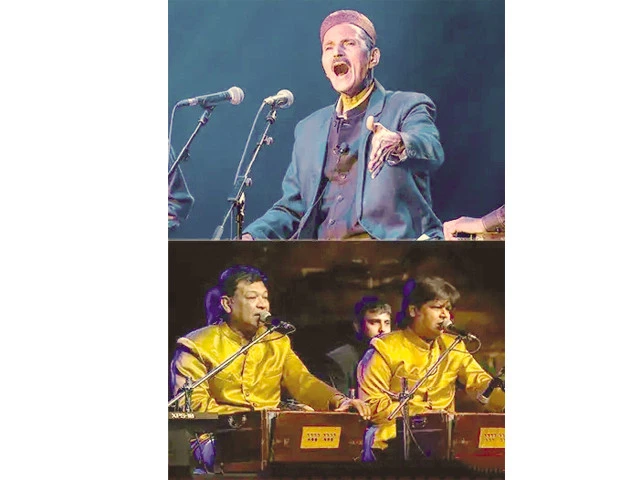
Pakistan’s acclaimed Khyal maestro, Ustad Naseeruddin Saami, has been named among the 11 global laureates of the 2025 Aga Khan Music Awards, joining distinguished artists from across Asia, Africa and the Middle East in receiving one of the world’s most respected honours for musical excellence.
The recognition places Pakistan at the heart of a global celebration of creativity and cultural heritage, as the Awards — founded by the late Prince Karim Aga Khan IV — move to the United Kingdom for the first time this November.
The event will spotlight exceptional artists whose work bridges tradition and innovation while embodying the spiritual and communal essence of music rooted in Islamic civilisations.
Ustad Saami, a living torchbearer of the Delhi gharana of Hindustani classical music, traces his lineage directly to the 13th-century poet, composer and Sufi visionary Amir Khusrau.
Revered for his mastery of Khyal, the art of melodic improvisation within the intricate framework of raga and tala, Saami has devoted his life to preserving and expanding Khusrau’s enduring legacy through both classical and devotional forms.
His group, which includes his four sons, continues to interpret Khusrau’s music with deep fidelity while introducing subtle contemporary textures that speak to new generations.
In this year’s Awards, Saami shares the prestigious Patron’s Award with India’s Warsi Brothers — Naseer and Nazeer Ahmed Khan — both renowned exponents of Qawwali, the devotional Sufi music born of Khusrau’s creative genius.
Together, the Saami and Warsi musical lineages stand as living embodiments of South Asia’s composite heritage, reminding audiences that Khusrau’s art was always about spiritual harmony and the unifying power of sound.
Announcing the winners from Geneva on Monday, the Aga Khan Music Programme stated that the 2025 edition will honour 11 laureates selected from more than four hundred nominations.
The jury, comprising leading musicians, scholars and producers, included Malian singer Oumou Sangare, Kronos Quartet founder David Harrington, and Lebanese musicologist Ghada Shbeir, among others.
The Awards will culminate in a grand ceremony at London’s Southbank Centre on November 22, forming part of a four-day festival of music from the ‘Great East’, presented in collaboration with the EFG London Jazz Festival.
Alongside Ustad Saami and the Warsi Brothers, the laureates represent a striking diversity of musical expression — from the deserts of Morocco to the coasts of Bahrain and the villages of Mali. Each artist, in their own way, has used music to sustain cultural identity while engaging with global audiences.
Among the winners is Iranian composer Sahba Aminikia, whose ‘Flying Carpet Festival’ brings music and art to children displaced by war in Turkiye and Syria. Bahraini ensemble Qalali Folk Band, founded over a century ago, preserves the maritime sounds of the nation’s pearl divers, while Senegal’s Senny Camara, a kora player and songwriter, lends a distinctly feminine voice to West Africa’s musical traditions.
Palestinian oud virtuoso Kamilya Jubran, now based in France, was honoured for her pioneering work in contemporary Arabic music and her commitment to nurturing young artists through her non-profit organisation Zamkana.
From Greece, Kyriakos Kalaidzidis was recognised for his scholarship and performance linking Islamic and Mediterranean traditions, while Turkey’s Derya Turkan was celebrated for his artistry on the classical kemence and his fusion of Turkish and Western idioms.
Lebanon’s Farah Kaddour, Mali’s revered 87-year-old singer Mariam Bagayoko, and Bahrain’s Qalali Folk Band complete the list of laureates, each contributing in unique ways to the living heritage of music shaped by Islamic civilisations.
The Patron’s Award presented jointly to Ustad Saami and the Warsi Brothers carries profound historical resonance. Both families trace their artistic ancestry to Amir Khusrau, whose genius fused Persian, Turkic and Indian influences into a uniquely South Asian soundscape.
Credited with shaping Qawwali and Khyal traditions, Khusrau’s creative spirit continues to inspire musicians across centuries. For Saami, this recognition underscores a lifelong mission to protect not only the technical aspects of his art but also its spiritual foundation — the belief that music is a bridge between the human and the divine.
The Aga Khan Music Awards offer not just financial support but also professional development opportunities for their recipients. These include new commissions, recording projects, management assistance and educational initiatives — all aimed at ensuring that musical traditions remain both relevant and sustainable in the modern world.
Now in its third cycle since its establishment in 2018, the Awards have grown into a platform that celebrates excellence across diverse musical cultures linked by Islamic influence. They honour artists and institutions whose work fosters community vitality, resilience and intercultural understanding. This year’s move to London reflects both the growing global stature of the Awards and the city’s role as a crossroads of artistic exchange.
The broader Aga Khan Music Programme, founded in 2000, continues to operate as a vital cultural initiative across regions from Central Asia to West Africa. Its mission extends beyond preservation, supporting new creations inspired — but not confined — by tradition. The programme runs music schools and development centres in countries including Pakistan, where young musicians are mentored through a reimagined master-apprentice model that blends traditional learning with contemporary expression.
The connection between the Music Programme’s educational work in Pakistan and the recognition of Ustad Saami this year highlights a continuum — one that stretches from Khusrau’s 13th-century Delhi to today’s global stage. It reflects the enduring vitality of South Asia’s musical spirit and Pakistan’s central role in safeguarding that heritage for future generations.
As the world’s cultural spotlight turns to London later this month, the sound of Pakistan’s Ragas and Qawwalis will resonate alongside rhythms from Mali, Morocco, Greece and beyond — a reminder that, despite borders and histories, music remains one of humanity’s most eloquent expressions of unity.

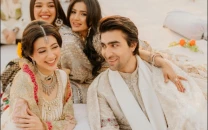
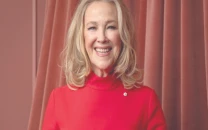


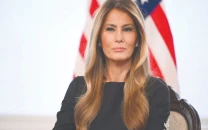
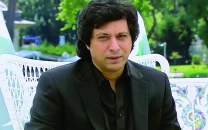

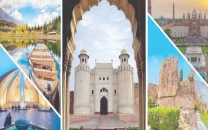












COMMENTS
Comments are moderated and generally will be posted if they are on-topic and not abusive.
For more information, please see our Comments FAQ